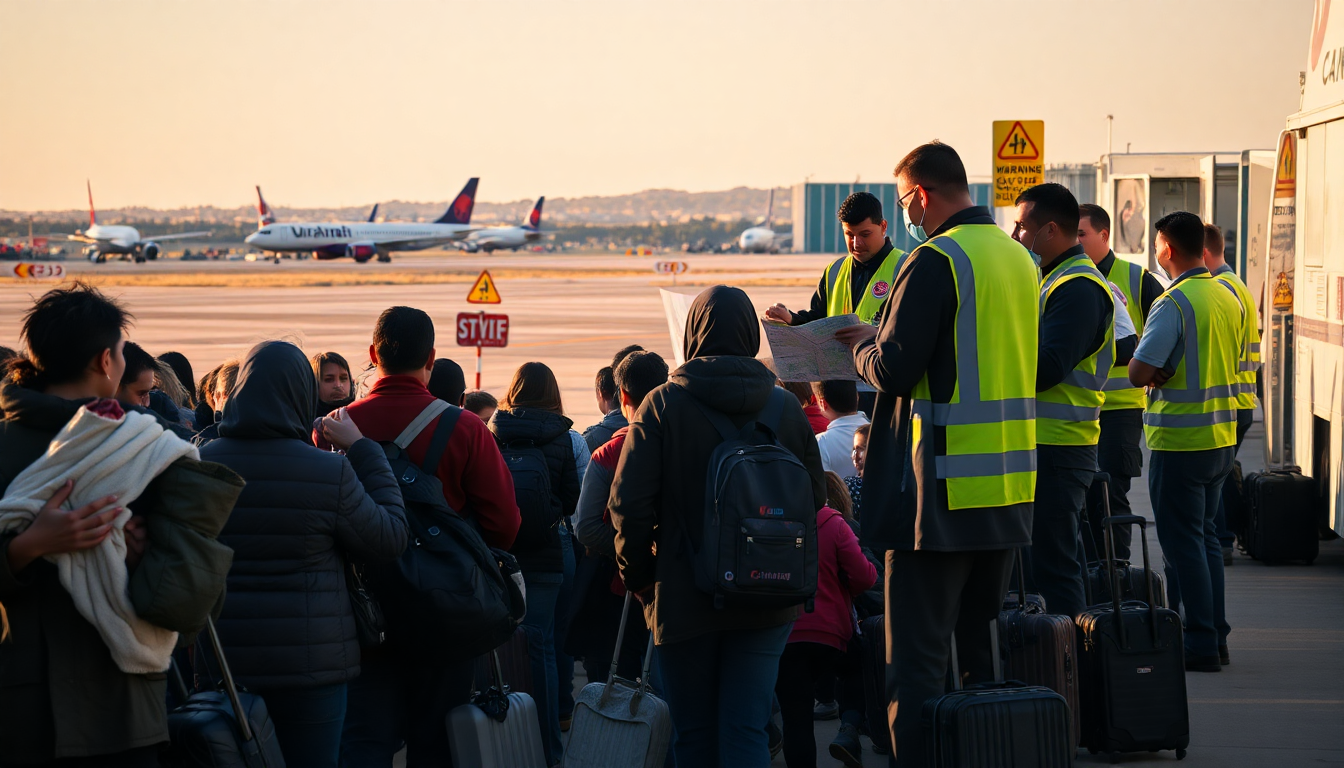Table of Contents
The recent escalation of conflict in the Middle East has sparked a wave of humanitarian responses from various countries, including Canada. With more than 800 Canadians, permanent residents, and their families having fled Iran, Israel, and the West Bank, the urgency of evacuation efforts has never been more critical. Global Affairs Canada is stepping up to assist those in distress, navigating the complexities and challenges that come with such operations. But what does this really mean for those affected?
The Current Landscape of Evacuations
As tensions rise in the Middle East, Canadian consular officials are on the front lines, helping individuals find safety. While many Canadians have managed to escape through their own efforts, a significant number still depend on government-organized evacuations. Global Affairs Canada is keeping the public informed about ongoing developments, revealing that they have measures in place to facilitate exits from these conflict zones.
Interestingly, a ceasefire—though fragile—has been in effect for three days after a harrowing period of missile and drone attacks between Iran and Israel. The involvement of international diplomacy, particularly the United States’ role in brokering this ceasefire, underscores the complex web of geopolitical factors that impact the safety of citizens in the region. Could this be a turning point? The partial reopening of Iranian airspace for flights is certainly a positive development, offering more movement and potential evacuation options.
Canada’s response has been proactive, arranging transportation for its citizens in the region. Recently, buses were organized to ferry individuals from Tel Aviv and Ramallah to Jordan, with additional chartered flights heading to Greece for further assistance. These measures are crucial, especially since the Canadian government has received over 6,000 inquiries for help from those in the Middle East. This not only highlights the demand for assistance but also the vital role of consular services during crises.
Challenges Faced in the Evacuation Process
However, the evacuation process isn’t without its hurdles. The unpredictable nature of conflict zones poses significant challenges. Despite the Canadian government urging citizens to register for updates, the voluntary nature of this service means the actual number of Canadians in affected areas remains uncertain. Recent reports indicate nearly 5,550 individuals are registered in Iran, while around 6,400 are in Israel, the West Bank, and Gaza.
The situation on the ground can change rapidly; air travel restrictions and security threats can complicate the movement of individuals seeking refuge. Canada, along with other nations, is doing its best to navigate these complexities, ensuring that citizens are informed and supported throughout the process. The cooperation among countries to facilitate the safe passage of their citizens highlights a collective humanitarian effort amidst the chaos.
Besides the logistical challenges, there are also emotional and psychological impacts on those forced to flee their homes. The Canadian government’s focus on providing comprehensive assistance reflects an understanding of the broader implications of such conflicts—not just for physical safety but for mental well-being as well.
Future Outlook and International Cooperation
As the conflict in the Middle East unfolds, the outlook for evacuees remains uncertain. However, ongoing diplomatic negotiations and the establishment of ceasefires offer a glimmer of hope for a more stable environment where individuals can safely leave conflict zones. Canada’s proactive stance in aiding its citizens sets a benchmark for humanitarian responses during international crises.
Looking ahead, maintaining open lines of communication and collaboration on evacuation efforts is crucial for all nations involved. The concerted efforts of multiple countries to assist their citizens demonstrate a commitment to international cooperation during these trying times. The lessons learned from the current situation will undoubtedly shape future responses to similar conflicts, emphasizing the importance of preparedness and rapid response capabilities.
In conclusion, while the challenges of evacuating citizens from conflict zones are significant, the united efforts of governments and international organizations provide a framework for effective humanitarian assistance. The ongoing situation serves as a stark reminder of the importance of vigilance, cooperation, and compassion in addressing human rights and safety during times of crisis. How will we ensure that we stand ready for the next challenge?


